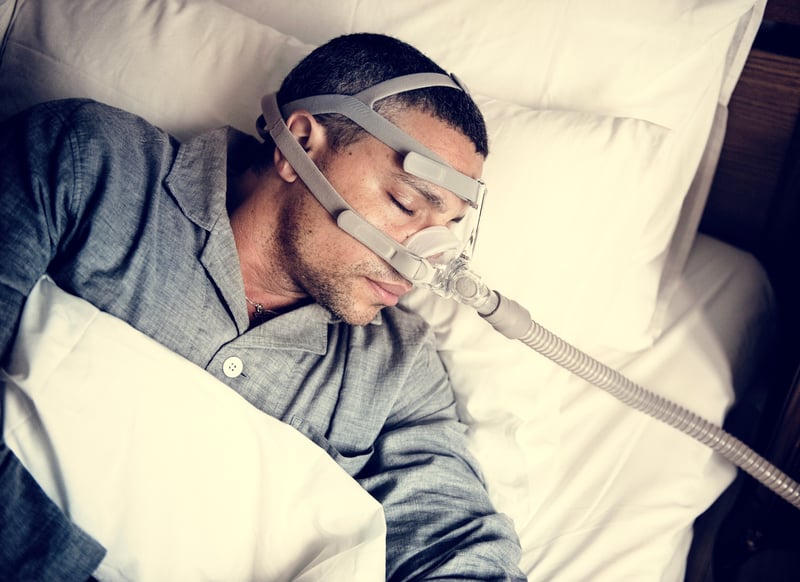Recursos del Paciente
Manténgase sano!
Sleep Apnea Boosts Odds for Long COVID
- May 12, 2023
- Denise Mann
- HealthDay Reporter

If you're one of the millions of folks with sleep apnea, you may be more likely to develop long COVID, a new study suggests.
Adults with obstructive sleep apnea were 75% more likely to experience long COVID symptoms than people without the disorder, which is marked by pauses in breathing during sleep.
People with long COVID experience new, lingering or worsening symptoms for more than four weeks after their initial COVID infection, according to the U.S. Centers for Disease Control and Prevention.
Exactly how, or even if, sleep apnea sets the stage for long COVID isn't fully understood, but researchers have some theories.
"The link between sleep apnea and long COVID could be due to shared risk factors such as obesity,"said study author Hannah Mandel. She is a senior research scientist for the RECOVER Initiative at NYU Langone Health in New York City.
For the study, researchers reviewed analyses of electronic health records from three data sets comprising more than 2.2 million people who tested positive for COVID-19 between March 2020 and February 2022.
Overall, 5% of adults and less than 2% of kids had been diagnosed with sleep apnea. Mandel and colleagues also used machine learning methods to assess follow-up symptoms and doctor's visits that could indicate long COVID.
When the researchers controlled for other factors known to increase the risk for long COVID, such as disease severity, age and underlying medical conditions, they found that sleep apnea increased the chances of long COVID in adults but not in kids.
"People with sleep apnea should stay current with vaccines and boosters, and those who are infected should seek early treatment to reduce illness severity and lower risk for long COVID, " Mandel said.
The study, which appears in the May 11 issue of Sleep, had its share of limitations. For example, researchers did not have information on the severity of sleep apnea or whether people were being treated for the condition.
That type of information is important, said sleep expert Dr. Raj Dasgupta. He is a clinical associate professor of medicine at the University of Southern California Keck School of Medicine in Los Angeles.
"If you are successfully treated for sleep apnea, it's a non-issue,"said Dasgupta, who was not involved in the new study.
The gold standard treatment for sleep apnea is the use of a continuous positive airway pressure (CPAP) machine to help keep your airways open during sleep.
Some of the symptoms of non-treated sleep apnea mimic the symptoms of long COVID, namely fatigue, lack of energy, headache and memory loss. "There's a lot of overlap,"he noted.
What's more, obstructive sleep apnea affects the heart and lungs, just like COVID.
There's also not one widely accepted definition of what long COVID is, which makes it harder to draw any firm conclusions from this study, Dasgupta said.
Still, untreated sleep apnea increases the risk of heart disease, heart attacks and strokes, in addition to potentially upping the chances for long COVID.
His advice? "Get tested and treated for obstructive sleep apnea,"he said. "Don't blow off sleep problems."
More information
The U.S. National Heart, Lung, and Blood Institute has more on treating sleep apnea.
SOURCES: Hannah Mandel, senior research scientist, RECOVER Initiative, NYU Langone Health, New York City; Raj Dasgupta, MD, associate professor, clinical medicine, Keck School of Medicine, University of Southern California, Los Angeles; Sleep, May 11, 2023

